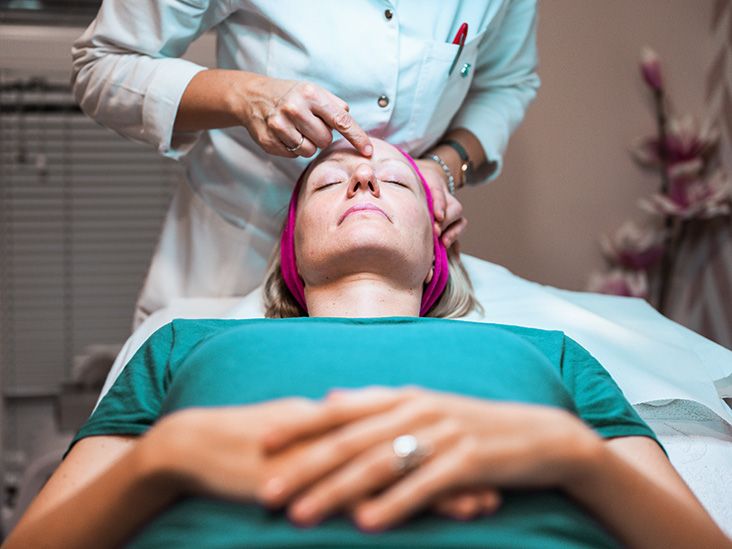Schedule an appointment for mohs surgery to remove skin cancer with minimal scarring.
Schedule an appointment for mohs surgery to remove skin cancer with minimal scarring.
Blog Article
Checking Out the Most Recent Developments in Dermatology: Mohs Techniques for Reliable Skin Cancer Cells Treatment
In the progressing landscape of dermatology, Mohs surgery has arised as a groundbreaking method in treating skin cancer. This strategy, recognized for its accuracy and efficiency, has reinvented the domain name, providing a sign of hope for individuals with basic and squamous cell carcinomas. As we unload the intricacies of this procedure and its side over traditional treatments, one can not help however ponder the transformative prospective Mohs surgical procedure holds for the future of skin cancer therapy.
Understanding the Principles of Mohs Surgery
A substantial number of people around the world are increasingly turning to Mohs surgical procedure for skin cancer cells therapy. The efficacy of Mohs surgery is amazing, boasting the highest possible success price amongst therapies for skin cancer cells, with a reported five-year remedy rate of up to 99% for brand-new cancers cells.
The Pioneering Role of Mohs Surgery in Dealing With Skin Cancer Cells
Despite the myriad of skin cancer therapies available today, Mohs surgical treatment holds a distinctive introducing duty. Developed by Dr. Frederic Mohs in the 1930s, this treatment has changed the field of dermatology by providing the greatest cure price for skin cancer individuals. Mohs surgery is particularly reliable in dealing with aggressive and recurring cancers cells, making it a recommended option for skin cancers located in cosmetically sensitive or functionally vital areas.

The Procedure: A Step-by-Step Breakdown of Mohs Surgery
Undergoing Mohs surgical procedure includes a precise, detailed process designed to eradicate skin cancer while preserving healthy cells. Each layer is carefully taken a look at under a microscope to examine for cancer cells. Unlike traditional techniques, Mohs surgical treatment enables the specialist to properly figure out when the cancer cells has been completely gotten rid of, lowering the requirement for additional therapy.
Secret Benefits of Opting for Mohs Surgical Treatment: Efficiency and Accuracy

Mohs Surgery vs. Standard Skin Cancer Therapies: A Comparative Evaluation
The relative analysis in between Mohs surgery and typical skin cancer treatments demands a comprehensive understanding of both approaches. The first component of the examination will certainly decode the procedure of Mohs surgical procedure, complied with by an exploration of conventional therapies. The last facet of the comparison will concentrate on the effectiveness of each method, supplying a clear contrast between Mohs and standard treatments.
Understanding Conventional Therapies
Patients fighting skin cancer cells often challenge a bewildering array of therapy choices. Typical treatments mainly involve surgical excision, cryotherapy, radiation, and topical radiation treatment. why not try this out In surgical excision, the malignant cells is removed along with some bordering healthy skin. Cryotherapy utilizes severe cold to eliminate cancer cells, while radiation treatment uses high-energy rays to damage them (mohs surgery). Topical chemotherapy entails using a cream or gel directly onto the skin cancer. While these treatments can be efficient, they might likewise cause scarring, pain, and in some situations, reoccurrence of the cancer. The option of treatment demands a mindful equilibrium in between eliminating the cancer completely and maintaining as much healthy and balanced skin as feasible. The next section will explore the Mohs surgical procedure, a technique that aims to accomplish this equilibrium.
Translating Mohs Surgery
Significant innovations in medical scientific research have led the method for even more nuanced and patient-friendly techniques to skin cancer therapy. One such innovation is Mohs surgery, a specialized treatment that stands out in treating particular sorts of skin cancer cells. Unlike conventional therapies that frequently get rid of extra healthy and balanced skin around the tumor, Mohs surgical procedure is an exact strategy that includes removing skin cancer cells layer by layer while taking a look at each layer under a microscopic lense up until no cancer cells remain. This not just guarantees full elimination of cancer cells but also lessens damage to bordering healthy tissue. Mohs surgical treatment is not appropriate for all skin cancers and individual problems, hence necessitating a careful assessment by skin specialists. The option between Mohs and standard treatments mostly depends upon the particular situations of each client.
Efficacy Contrast: Mohs vs. Typical
While both Mohs surgical treatment and conventional skin cancer treatments have their merits, a relative evaluation reveals distinctive differences in efficiency. The Mohs method, entailing the removal of one skin layer at a time, has actually shown greater cure rates for both key and recurring skin cancers cells. Traditional approaches like excision, cryotherapy, or radiation therapy, although reliable, may not constantly guarantee complete removal of cancer cells. A study by the American University of Mohs Surgical treatment found that Mohs surgical procedure had a 99% success rate for dealing with basal cell cancer, contrasted to an 89% rate for traditional approaches. However, person suitability, cancer kind, and location significantly influence therapy outcomes. Consequently, while Mohs shows remarkable efficacy, it's not widely relevant.
Embracing the Future: The Expanding Fostering of Mohs Surgery in Dermatology
In the last few years, making use of Mohs surgery in the field of dermatology has seen the original source an excellent rise. This growing adoption next page is attributed to the procedure's high cure prices, specifically for basic cell cancer and squamous cell carcinoma, the most common sorts of skin cancer cells. Mohs surgical procedure offers the benefit of maintaining more healthy and balanced cells than typical approaches, making it a recommended choice for dealing with cancers cells in cosmetically delicate areas - chemical peel. As skin doctors come to be a lot more knowledgeable and comfy with the method, its usage is anticipated to continue broadening. Nevertheless, the requirement for particular training and sources can position challenges to widespread adoption. Despite this, the future of dermatology seems to be embracing Mohs surgery as a key tool against skin cancer cells.
Conclusion
In summary, the improvements in Mohs surgery methods have actually revolutionized skin cancer therapy in dermatology. The treatment's accuracy in removing cancerous skin layers while saving healthy and balanced cells has verified its efficiency, leading to high remedy rates and reduced reappearance. Given its superiority over standard approaches, the fostering of Mohs surgery is expected to grow, positioning it as the future of efficient skin cancer therapy.
Report this page